







Lie with Me
Philippe Besson | Read: 2024-04-09
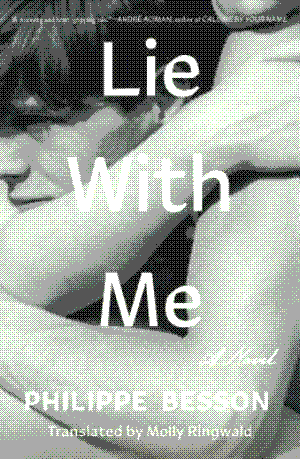
★★★ (No review... yet)
Just outside a hotel in Bordeaux, Philippe chances upon a young man who bears a striking resemblance to his first love. What follows is a look back at the relationship he's never forgotten, a hidden affair with a gorgeous boy named Thomas during their last year of high school. Without ever acknowledging they know each other in the halls, they steal time to meet in secret, carrying on a passionate, world-altering affair. (StoryGraph).
Lie with Me by Philippe Besson is a novel about two young men's love for each other and their separation given by time, but for me is a novel that doesn't really know what it is.
The entire perception of Lie with Me depends on one factor: is it a memoir or is a work of fiction? It being a memoir makes sense; the dedication is to the Thomas Andrieu of the book, the main character's name is Philippe and is from Besson's hometown of Barbezieux, references are made to Besson's past novel-- it seems very personal. However, as Besson has said, he only writes fiction (which is contrasted when the Philippe in the story says he only writes fiction and Lucas notes that's really a lie). One could combine the two and say it's a work of autofiction, a fictionalized autobiography and a genre popular in France, which is the interpretation I'm using.
Off the assumption that this is based off true experiences, I think this is a really intimate look into a young, gay love in a time of overwhelming odds. Despite not being that big of a fan of more plain writing styles (I prefer people to wax poetic), I do have to say that it is written well, although the stream-of-conscious monologues aren't particularly memorable. My problems with the novel primarily lie within the second half of the book. Spoilers follow.
What I'm mainly confused by is the adult Thomas' actions. There is the constant theme of him not having a choice, but he does. First, we see Philippe living proudly and happily as a gay man. Secondly, he literally leaves his entire family behind one day. He quite literally has a choice. I then wonder what the point of committing suicide was. We know he doesn't like to change or commit fully to the gay lifestyle, that is made clear again and again, but this results in an unsatisfying character who's final decision doesn't make much sense from a narrative point of view.
I understand the idea that he committed suicide after basically burning away his entire past, but is unable to adapt to the gay lifestyle and finds himself lonely and isolated again. But why return to Charntel, where he is practically dead to everyone, and the commit suicide in what is fundamentally not his property? Seems like a big show for someone who doesn't particularly wish to be noticed.
There's also the romantic quality of Thomas searching for Philippe but couldn't find him and his heart broke or something like that. But it's established that Thomas knows Philippe is a writer who is constantly traveling-- he even has his number! Thomas would know where Philippe would be during book tours, or at least know he wouldn't be in France for long periods of time.
Reconnection, I feel, would've been more satisfying. They don't even need to end up back together, and honestly I think it would help Thomas "grow up" and be more confident in his life. Yes, this gets rid of the yearning, the "what if", the genuine reality that that doesn't really happen, but also this is a novel. If you are so adamant that this a novel, then it will be treated as such. And in a novel, such lack of change and unwillingness to break the status quo isn't particularly satisfying. However, to contradict myself, the yearning and separation does give a wistful quality to the work and adds more to the tragedy. But I feel like tragedy needs to make sense, otherwise it's just a bit silly.
I think the themes are better explored in three books: Giovanni's Room by James Baldwin, Pachinko by Min Jin Lee, and Little Gods by Meng Jin (spoilers for Pachinko).
Giovanni's Room has the central premise be a man who is too scared to commit fully into a gay life or a straight one. It works better than Lie with Me in the sense we fully learn why it's impossible for David to do either; the former is a life that simply is unachievable in the 1950s (note that by the time of Thomas' leaving of the family it's the 2010s) and the latter would be a undesired life. We constantly feel this battle and all the external pressures on him. In Lie with Me, we don't know why Thomas feels he has no choice when it does show that he does have quite a few choices.
A scene in Pachinko deals heavily with the idea of someone committing suicide after their past appears again. In Book 3, Sunja's family are a group of Koreans in Japan after WW2. In Book 2, Noa had just learned that his father was a member of the yakuza and is deeply ashamed. Moreover, Noa is ambitious and wants to rise above his station, but his Korean identity limits him. As such, he cuts contact with his family and lives his life as a full-blooded Japanese person. When his mother, Sunja, finds him again Noa commits suicide shortly after. In Pachinko, we know why he did so: he would lose his job, his family, his status, and his identity. There is really nothing left for him anymore-- he could return to his family in Tokyo, but that's so antithetical to what we know of Noa that it doesn't seem possible at all. In Lie with Me, we don't get any of that complexity. Thomas is just shown as unmoving. To Noa, Sunja represents constraint, lies, crime; to Thomas, Philippe represents freedom. So why choose suicide? Wouldn't seeing Philippe living his best life be more of an inspiration for Thomas to free himself and to live authentically from a narrative perspective?
Little Gods has the theme of someone close to you dying but you not really knowing them. Little Gods explores this in a unique way by telling about Su Lan's life from the perspective of various people that knew her. We never hear what Su Lan's perspective on her own life was. And this creates a really interesting contrast and a very realistic portrait of someone who lived a complex life! But with Lie with Me we only know Thomas through Philippe's perspective, one of a man who is hopelessly in love. This crush-lens gets rid of the other's agency.
Which finally leads me to: what is the point? What am I meant to understand from this novel? Living your truth leads to happiness? Seems all that did was make Thomas commit suicide. The pain of first love? Maybe, but that just feels too overly simplistic. Honestly, this isn't that huge of a deal but it adds to the feeling that the novel doesn't know how to define itself.
For all that is said, I still feel like I can't fully dislike this book. It does feel very personal to Besson and the writing can not be scoffed at. It's a quick read so if it does interest you I would recommend reading it, but personally it has a lot of faults that are central to the narrative that makes it difficult to justify a place in my memory.
Giovanni's Room
James Baldwin | Read: 2024-02-10
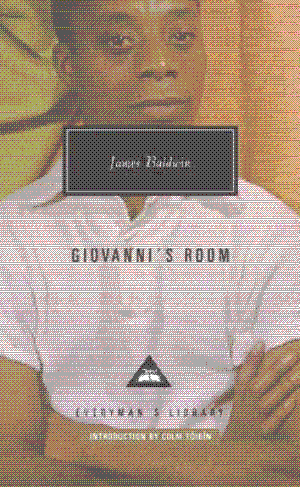
★★★★★ (No review... yet)
David is a young American expatriate who has just proposed marriage to his girlfriend, Hella. While she is away on a trip, David meets a bartender named Giovanni to whom he is drawn in spite of himself. Soon the two are spending the night in Giovanni's curtainless room, which he keeps dark to protect their privacy. But Hella's return to Paris brings the affair to a crisis, one that rapidly spirals into tragedy. Caught between his repressed desires and conventional morality, David struggles for self-knowledge during one long, dark night--"the night which is leading me to the most terrible morning of my life." With sharp, probing insight, Giovanni's Room tells an impassioned, deeply moving story that lays bare the unspoken complexities of the human heart. (StoryGraph).
Loved, loved, LOVED this book. I could talk about it for hours. Baldwin's writing is equal to none. The book explores what it means to be a man, is somehow feminist despite the main characters' misogyny, and what it means to be an American. You could write papers upon papers about Giovanni (and really all the characters), analyzing why they do what they do. Highly, highly recommend.
Disobedience
Naomi Alderman | Read: 2024-02-04
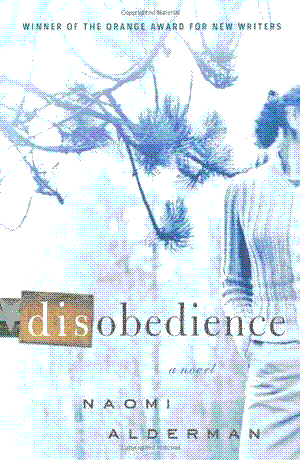
★★★ (No review... yet)
A small, close-knit Orthodox Jewish community in London is the setting for a revealing look at religion and sexuality in Alderman's frank yet heartfelt debut novel, Disobedience. The story begins with the death of the community's esteemed rabbi, which sets in motion plans for a memorial service and the search for a replacement. The rabbi's nephew and likely successor, Dovid, calls his cousin Ronit in New York to tell her that her father has died. Ronit, who left the community long ago to build a life for herself as a career woman, returns home when she hears the news, and her reappearance exposes tears in the fabric of the community. (StoryGraph).
I thought it was really good! Was a unique discussion on Orthodox Judaism and why Esti feels it better to remain a part of the community, despite being a lesbian. It's kind of funny because everyone in the book is SO DRAMATIC.
Young Mungo
Douglas Stuart | Read: 2024-01-26
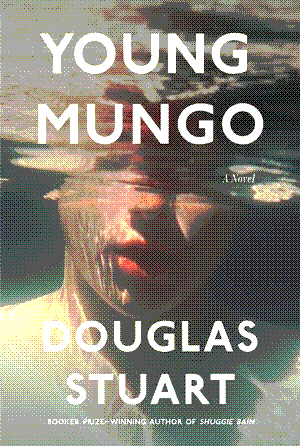
★★★★★ (No review... yet)
Growing up in a housing estate in Glasgow, Mungo and James are born under different stars—Mungo a Protestant and James a Catholic—and they should be sworn enemies if they’re to be seen as men at all. Yet against all odds, they become best friends as they find a sanctuary in the pigeon dovecote that James has built for his prize racing birds. As they fall in love, they dream of finding somewhere they belong, while Mungo works hard to hide his true self from all those around him, especially from his big brother Hamish, a local gang leader with a brutal reputation to uphold. And when several months later Mungo’s mother sends him on a fishing trip to a loch in Western Scotland with two strange men whose drunken banter belies murky pasts, he will need to summon all his inner strength and courage to try to get back to a place of safety, a place where he and James might still have a future. (StoryGraph).
One of my favorite novels of all time. The writing is beautiful and the characters are stunningly real. While it does feel like there is a constant "damned if you don't, damned if you do", it truly never feels like there is no hope for the characters. There are some incredibly disturbing things discussed, but I think they are handled tactifully.
The Atlas of Reds and Blues
Devi S. Laskar | Read: 2024-01-20
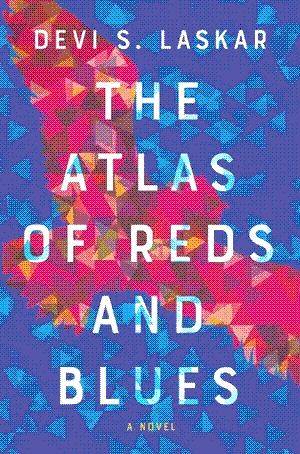
★★ (No review.)
When an unnamed narrator moves her family from the city of Atlanta to its wealthy suburbs, she discovers that neither the times nor the people have changed since her childhood in a small southern town. Despite the intervening decades, the woman, known only as The Mother, is met with the same questions: Where are you from? No, where are you really from? The American-born daughter of Bengali immigrant parents, her truthful answer, here, is never enough. She finds herself navigating a climate of lingering racism with three daughters in tow and a husband who spends more time in business class than at home.
The Mother's simmering anger breaks through one morning, when, during a baseless and prejudice-driven police raid on her house, she finally refuses to be calm, complacent, polite—and is ultimately shot. As she lies bleeding on her driveway, The Mother struggles to make sense of her past and decipher her present—how did she end up here? (StoryGraph).
Let's start with the positives. I LOVED the writing style and how the chapters and pages were separated. It gives the idea that all of this is running through her mind as she lays dying. The main characters lacking names I also enjoy. However, I think this book fell flat. While I recognize that it's very personal to Laskar, it feels like there's no reason to have any hope. The entire book can be summed up as "racist things happen to her, she hates her life and family, and then she dies." Nothing more.
The Stranger
Albert Camus | Read: 2024-01-13
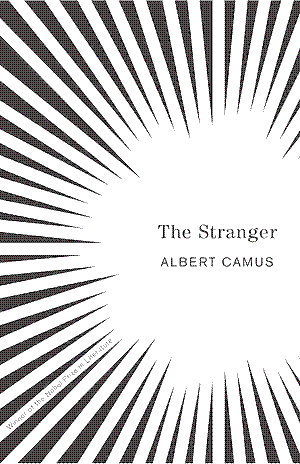
★★ (No review.)
Since it was first published in English, in 1946, Albert Camus's first novel, The Stranger (L'étranger), has had a profound impact on millions of American readers. Through this story of an ordinary man who unwittingly gets drawn into a senseless murder on a sundrenched Algerian beach, Camus explored what he termed 'the nakedness of man faced with the absurd'. (StoryGraph).
Turns out absurdist philosophy doesn't translate very well into fiction. Personally, I think Myth of Sisyphus does it better and I haven't even read all of that book. The book could basically just be Meursault's monologue to the priest and that'd be it.
House of Leaves
Mark Z. Danielewski | Read: 2024-01-07
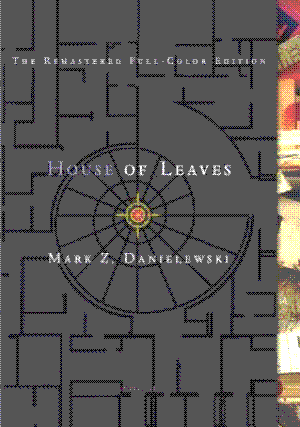
★★★★★ (No review... yet)
Years ago, when House of Leaves was first being passed around, it was nothing more than a badly bundled heap of paper, parts of which would occasionally surface on the Internet. No one could have anticipated the small but devoted following this terrifying story would soon command. Starting with an odd assortment of marginalized youth—musicians, tattoo artists, programmers, strippers, environmentalists, and adrenaline junkies—the book eventually made its way into the hands of older generations, who not only found themselves in those strangely arranged pages but also discovered a way back into the lives of their estranged children.
Now, for the first time, this astonishing novel is made available in book form, complete with the original colored words, vertical footnotes, and newly added second and third appendices.
The story remains unchanged, focusing on a young family that moves into a small home on Ash Tree Lane where they discover something is terribly wrong: their house is bigger on the inside than it is on the outside.
Of course, neither Pulitzer Prize-winning photojournalist Will Navidson nor his companion Karen Green was prepared to face the consequences of that impossibility, until the day their two little children wandered off and their voices eerily began to return another story—of creature darkness, of an ever-growing abyss behind a closet door, and of that unholy growl which soon enough would tear through their walls and consume all their dreams. (StoryGraph).
This book is absolutely AMAZING. It's writing style is unparalleled and is just an absolute masterpiece. I highly, highly, HIGHLY recommend this book to everyone. It's difficult to understand, but once you read it, there is no going back.
Don't Cry For Me
Daniel Black | Read: 2023-12-29
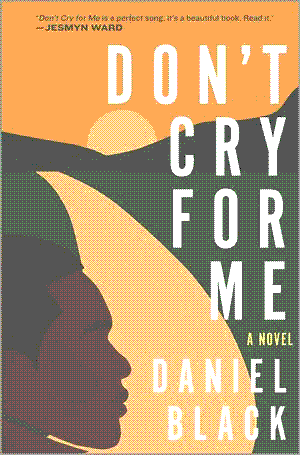
★★★★ (No review... yet)
As Jacob lies dying, he begins to write a letter to his only son, Isaac. They have not met or spoken in many years, and there are things that Isaac must know. Stories about his ancestral legacy in rural Arkansas that extend back to slavery. Secrets from Jacob's tumultuous relationship with Isaac's mother and the shame he carries from the dissolution of their family. Tragedies that informed Jacob's role as a father and his reaction to Isaac's being gay. But most of all, Jacob must share with Isaac the unspoken truths that reside in his heart. He must give voice to the trauma that Isaac has inherited. And he must create a space for the two to find peace. (StoryGraph).
I really loved this! It was intimate and sincere, and I can tell it is very personal to Black. I found the style to be unique and a cool way to push forward the story.
Things Have Gotten Worse Since We Last Spoke: And Other Misfortunes
Erica LaRocca | Read: 2023-12-26
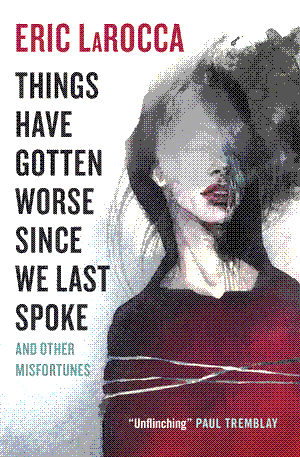
★★ (No review.)
A whirlpool of darkness churns at the heart of a macabre ballet between two lonely young women in an internet chat room in the early 2000s -- a darkness that threatens to forever transform them once they finally succumb to their most horrific desires. A couple isolate themselves on a remote island in an attempt to recover from their teenage son’s death, when a mysterious young man knocks on their door during a storm… And a man confronts his neighbour when he discovers a strange object in his backyard, only to be drawn into an even more dangerous game. (StoryGraph).
The title is so amazing and the premises are all so interesting, but every story fell flat for me. I felt like they were unnecessarily gory at points, and all of them just had missed potential.
A Minor Chorus
Billy-Ray Belcourt | Read: 2023-11-29
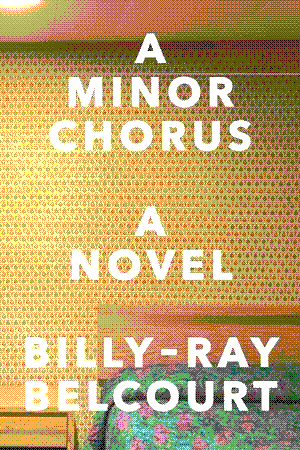
★★★★ (No review... yet)
In Northern Alberta, a queer Indigenous doctoral student steps away from his dissertation to write a novel. He is adrift, caught between his childhood on the reservation and this new life of the urban intelligentsia. Billy-Ray Belcourt's unnamed narrator chronicles a series of encounters: a heart-to-heart with fellow doctoral student River over the mounting pressure placed on marginalized scholars; a meeting with Michael, a closeted adult from his hometown whose vulnerability and loneliness punctuate the realities of queer life on the fringe. Amid these conversations, the narrator is haunted by memories of Jack, a cousin caught in the cycle of police violence, drugs, and survival. Jack's life parallels the narrator's own; the possibilities of escape and imprisonment are left to chance with colonialism stacking the odds (StoryGraph).
I thought this book was beautiful. All the dialogues were complex and felt like a real conversation between people. Definitely recommend.
The Song of Achilles
Madeline Miller | Read: 2023-09-01

★★★ (No review... yet)
Greece in the age of heroes. Patroclus, an awkward young prince, has been exiled to the court of King Peleus and his perfect son Achilles. By all rights their paths should never cross, but Achilles takes the shamed prince as his friend, and as they grow into young men skilled in the arts of war and medicine their bond blossoms into something deeper - despite the displeasure of Achilles' mother Thetis, a cruel sea goddess. But then word comes that Helen of Sparta has been kidnapped. Torn between love and fear for his friend, Patroclus journeys with Achilles to Troy, little knowing that the years that follow will test everything they hold dear. (StoryGraph).
Controversial take, but I didn't enjoy this book as much as I thought I would. HOWEVER, the book is still really good and I think it did a good job at making the story more approachable for a modern audience and adding queer themes. I also think any reimagining of a classical story that still is able to enrapture the reader deserves high praise.
Under the Udala Trees
Chinelo Okparanta | Read: 2023-03-12

★★★★ (No review... yet)
Ijeoma comes of age as her nation does; born before independence, she is eleven when civil war breaks out in the young republic of Nigeria. Sent away to safety, she meets another displaced child and they, star-crossed, fall in love. They are from different ethnic communities. They are also both girls. When their love is discovered, Ijeoma learns that she will have to hide this part of herself. But there is a cost to living inside a lie. (StoryGraph).
Extremely beautiful and moving. I never knew about the Nigerian Civil War and the ethnic tensions within the country, so this book taught me a lot! I really enjoyed it and I can't wait to read more books from Nigerian authors.
Mexican Gothic
Silvia Morena-Garcia | Read: 2023-02-19
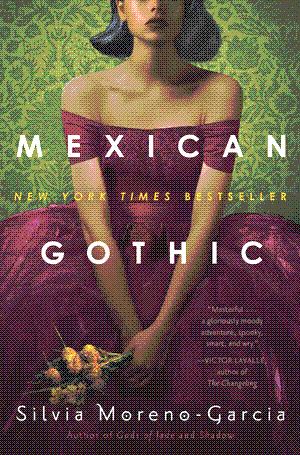
★★ (No review... yet)
After receiving a frantic letter from her newly-wed cousin begging for someone to save her from a mysterious doom, Noemí Taboada heads to High Place, a distant house in the Mexican countryside. She’s not sure what she will find—her cousin’s husband, a handsome Englishman, is a stranger, and Noemí knows little about the region.
Noemí is also an unlikely rescuer: She’s a glamorous debutante, and her chic gowns and perfect red lipstick are more suited for cocktail parties than amateur sleuthing. But she’s also tough and smart, with an indomitable will, and she is not afraid: Not of her cousin’s new husband, who is both menacing and alluring; not of his father, the ancient patriarch who seems to be fascinated by Noemí; and not even of the house itself, which begins to invade Noemi’s dreams with visions of blood and doom.
Her only ally in this inhospitable abode is the family’s youngest son. Shy and gentle, he seems to want to help Noemí, but might also be hiding dark knowledge of his family’s past. For there are many secrets behind the walls of High Place. The family’s once colossal wealth and faded mining empire kept them from prying eyes, but as Noemí digs deeper she unearths stories of violence and madness. (StoryGraph).
I have mixed feelings about this book. It's certainly not bad by any means, but I think it runs into a lot of logical problems on why things happen. My biggest gripe is despite it being called Mexican, it takes place almost entirely in an English manor. It feels like the story could've taken place anywhere.
血の轍 (Blood on the Tracks)
Shuzo Oshimi | Read: 2023-01-03
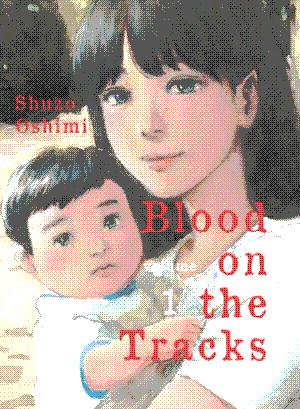
★★★ (No review... yet)
Seiichi's mother loves him very much, and his days pass with placid regularity. School, friends, even the attention of his attractive classmate Fukiishi. Until one terrible summer day, that all changes ... Gorgeous art and an understated script only serve to heighten the tension as we watch Seiichi Osabe's life spiral into nightmare. (StoryGraph).
Really good premise! Wish it was longer but that means I gotta read the other volumes then.
These Violent Delights
Micah Nemerever | Read: 2023-01-02
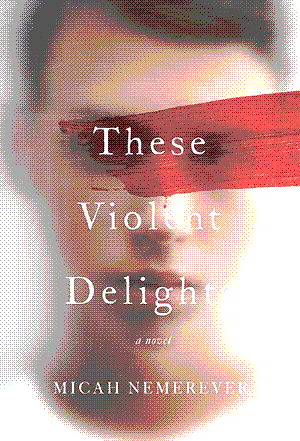
★★★★★ (No review... yet)
When Paul enters university in early 1970s Pittsburgh, it’s with the hope of moving past the recent death of his father. Sensitive, insecure, and incomprehensible to his grieving family, Paul feels isolated and alone. When he meets the worldly Julian in his freshman ethics class, Paul is immediately drawn to his classmate’s effortless charm.
Paul sees Julian as his sole intellectual equal—an ally against the conventional world he finds so suffocating. Paul will stop at nothing to prove himself worthy of their friendship, because with Julian life is more invigorating than Paul could ever have imagined. But as charismatic as he can choose to be, Julian is also volatile and capriciously cruel, and Paul becomes increasingly afraid that he can never live up to what Julian expects of him.
As their friendship spirals into all-consuming intimacy, they each learn the lengths to which the other will go in order to stay together, their obsession ultimately hurtling them toward an act of irrevocable violence. (StoryGraph).
This is my favorite book OF ALL TIME. The descriptions and writing are so beautiful, everyone feels so real, and the twists are heartwrenching (them murdering someone happens in the prologue). It's easy to sympathize and understand the two main characters even if they are not the greatest of people. HIGHLYYYYYYY recommend.
Before the Coffee Gets Cold
Toshikazu Kawaguchi | Read: 2022
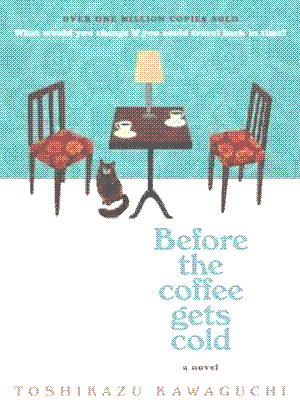
★★ (No review... yet)
In a small back alley of Tokyo, there is a café that has been serving carefully brewed coffee for more than one hundred years. Local legend says that this shop offers something else besides coffee—the chance to travel back in time.
Over the course of one summer, four customers visit the café in the hopes of making that journey. But time travel isn’t so simple, and there are rules that must be followed. Most important, the trip can last only as long as it takes for the coffee to get cold. (StoryGraph).
Alright. The concept is really interesting and it definitely sucks you into the world, but the writing is nothing to write home about and it's a lil bland.
The Perfect World of Miwako Sumida
Clarissa Goenawan | Read: 2022
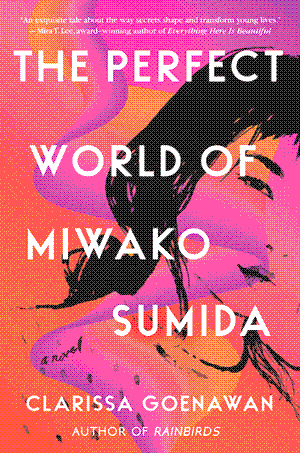
★★★★★ (No review... yet)
University sophomore Miwako Sumida has hanged herself, leaving those closest to her reeling. In the months before her suicide, she was hiding away in a remote mountainside village, but what, or whom, was she running from?
To Ryusei, a fellow student at Waseda; Chie, Miwako’s best friend; and Fumi, Ryusei’s older sister, Miwako was more than the blunt, no-nonsense person she projected to the world. Heartbroken, Ryusei begs Chie to take him to the village where Miwako spent her final days. While he is away, Fumi receives an unexpected guest at their shared apartment in Tokyo, distracting her from her fear that Miwako’s death may ruin what is left of her brother’s life. (StoryGraph).
This book takes what Little Gods did well and did it even better. We learn of Miwako, not by her own words but by others views of her. As the book progresses we get a more complex and intricate portrait of her life. Definitely recommend.
Night Sky with Exit Wounds
Ocean Vuong | Read: 2022
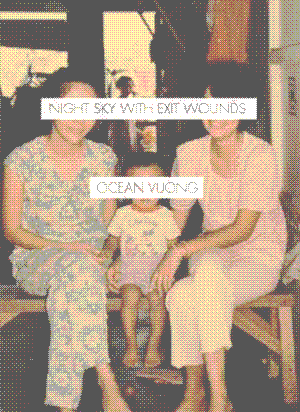
★★★★ (No review... yet)
Ocean Vuong's first full-length collection aims straight for the perennial "big"—and very human—subjects of romance, family, memory, grief, war, and melancholia. None of these he allows to overwhelm his spirit or his poems, which demonstrate, through breath and cadence and unrepentant enthrallment, that a gentle palm on a chest can calm the fiercest hungers. (Goodreads).
Some absolutely GORGEOUS pieces of poetry. Favorites are Seventh Circle of Earth, Immigrant Haibun, My Father Writes from Prison, Prayer for the Newly Damned, Ode to Masturbation, and Threshold.
Their Eyes Were Watching God
Zora Neale Hurston | Read: 2021
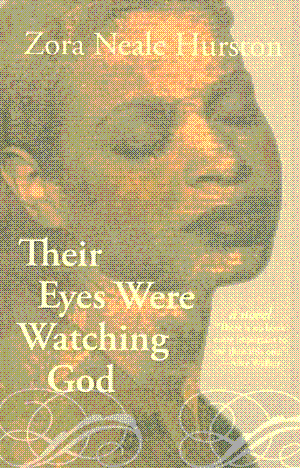
★★★ (No review... yet)
Told in the captivating voice of a woman who refuses to live in sorrow, bitterness, fear, or foolish romantic dreams, it is the story of fair-skinned, fiercely independent Janie Crawford, and her evolving selfhood through three marriages and a life marked by poverty, trials, and purpose. A true literary wonder, Hurston's masterwork remains as relevant and affecting today as when it was first published -- perhaps the most widely read and highly regarded novel in the entire canon of African American literature. (StoryGraph).
I had to read this book for school, but I remember really enjoying it. Another very tragic book, but it follows that bittersweet theme that I mentioned in Pachinko. Considering rereading at some point.
Little Gods
Meng Jin | Read: 2021
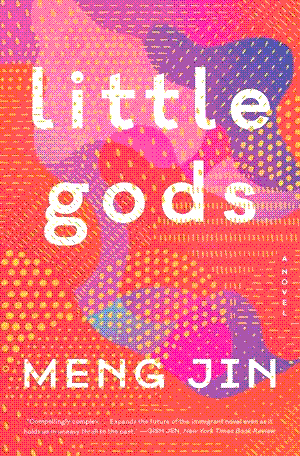
★★★★ (No review... yet)
On the night of June Fourth, a woman gives birth in a Beijing hospital alone. Thus begins the unraveling of Su Lan, a brilliant physicist who until this moment has successfully erased her past, fighting what she calls the mind’s arrow of time.
When Su Lan dies unexpectedly seventeen years later, it is her daughter Liya who inherits the silences and contradictions of her life. Liya, who grew up in America, takes her mother’s ashes to China—to her, an unknown country. In a territory inhabited by the ghosts of the living and the dead, Liya’s memories are joined by those of two others: Zhu Wen, the woman last to know Su Lan before she left China, and Yongzong, the father Liya has never known. In this way a portrait of Su Lan emerges: an ambitious scientist, an ambivalent mother, and a woman whose relationship to her own past shapes and ultimately unmakes Liya’s own sense of displacement.
A story of migrations literal and emotional, spanning time, space and class, Little Gods is a sharp yet expansive exploration of the aftermath of unfulfilled dreams, an immigrant story in negative that grapples with our tenuous connections to memory, history, and self. (StoryGraph).
I LOVE this book. Every character perspective is about Su Lan and we learn about who she was by basically everyone but her. I think this is a beautiful way of showing how we impact the people around this and how they interpret you. I think Liya's sections are kinda weak in comparison to the others, but I still recommend it.
The Secret History
Donna Tartt | Read: 2021
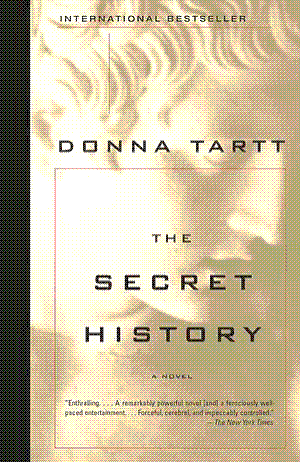
★★★ (No review... yet)
Under the influence of their charismatic classics professor, a group of clever, eccentric misfits at an elite New England college discover a way of thinking and living that is a world away from the humdrum existence of their contemporaries. But when they go beyond the boundaries of morality, their lives are changed profoundly and for ever. (StoryGraph).
I was in a reading slump when I got to this book and it took me months to get through. I thought it was alright then, but I know if I reread it I would probably like it a lot better. It's a good story and did make me fall in love with the "flawed and unlikeable" main character trope.
Homegoing
Yaa Gyasi | Read: 2021
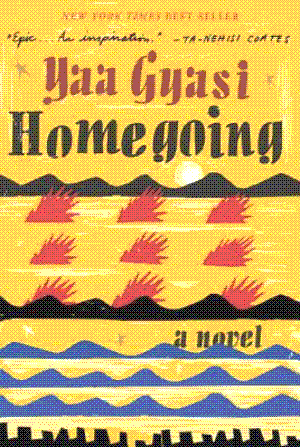
★★★★★ (No review... yet)
Effia and Esi are born into different villages in eighteenth-century Ghana. Effia is married off to an Englishman and lives in comfort in the palatial rooms of Cape Coast Castle. Unbeknownst to Effia, her sister, Esi, is imprisoned beneath her in the castle’s dungeons, sold with thousands of others into the Gold Coast’s booming slave trade, and shipped off to America, where her children and grandchildren will be raised in slavery. One thread of Homegoing follows Effia’s descendants through centuries of warfare in Ghana, as the Fante and Asante nations wrestle with the slave trade and British colonization. The other thread follows Esi and her children into America. From the plantations of the South to the Civil War and the Great Migration, from the coal mines of Pratt City, Alabama, to the jazz clubs and dope houses of twentieth-century Harlem, right up through the present day, Homegoing makes history visceral, and captures, with singular and stunning immediacy, how the memory of captivity came to be inscribed in the soul of a nation. (StoryGraph).
Found the book beautiful and a great representation of the multi-generational story. HIGHLY recommend.
Swimming in the Dark
Tomasz Jedrowski | Read: 2021
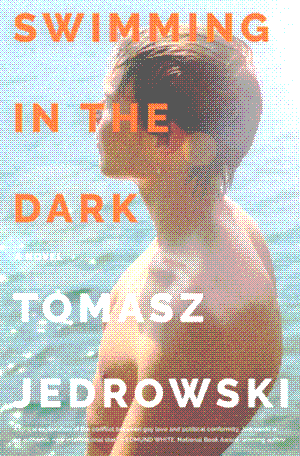
★★★ (No review... yet)
When university student Ludwik meets Janusz at a summer agricultural camp, he is fascinated yet wary of this handsome, carefree stranger. But a chance meeting by the river soon becomes an intense, exhilarating, and all-consuming affair. After their camp duties are fulfilled, the pair spend a dreamlike few weeks in the countryside, bonding over an illicit copy of James Baldwin's Giovanni's Room.
Inhabiting a beautiful, natural world removed from society and its constraints, Ludwik and Janusz fall deeply in love. But in their repressive Communist and Catholic society, the passion they share is utterly unthinkable.
Once they return to Warsaw, the charismatic Janusz quickly rises in the political ranks of the party and is rewarded with a highly coveted government position. Ludwik is drawn toward impulsive acts of protest, unable to ignore rising food prices and the stark economic disparity around them. Their secret love and personal and political differences slowly begin to tear them apart as both men struggle to survive in a regime on the brink of collapse. (StoryGraph)
I don't really remember this book that well, but I remember liking it. Will probably reread it at some point.
Pachinko
Min Jin Lee | Read: 2021
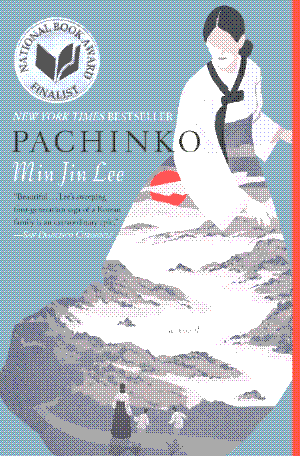
★★★★★ (No review... yet)
Pachinko follows one Korean family through the generations, beginning in early 1900s Korea with Sunja, the prized daughter of a poor yet proud family, whose unplanned pregnancy threatens to shame them all. Deserted by her lover, Sunja is saved when a young tubercular minister offers to marry and bring her to Japan.
So begins a sweeping saga of an exceptional family in exile from its homeland and caught in the indifferent arc of history. Through desperate struggles and hard-won triumphs, its members are bound together by deep roots as they face enduring questions of faith, family, and identity.(StoryGraph.)
On Earth We're Briefly Gorgeous
Ocean Vuong | Read: 2021
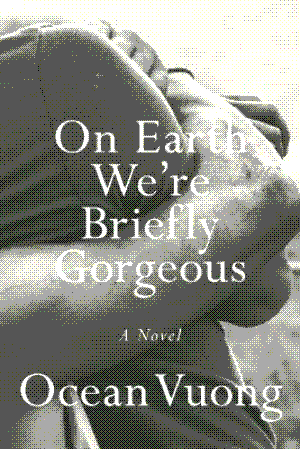
★★★★★ (No review... yet)
On Earth We're Briefly Gorgeous is a letter from a son to a mother who cannot read. Written when the speaker, Little Dog, is in his late twenties, the letter unearths a family's history that began before he was born -- a history whose epicenter is rooted in Vietnam -- and serves as a doorway into parts of his life his mother has never known, all of it leading to an unforgettable revelation. At once a witness to the fraught yet undeniable love between a single mother and her son, it is also a brutally honest exploration of race, class, and masculinity. Asking questions central to our American moment, immersed as we are in addiction, violence, and trauma, but undergirded by compassion and tenderness, On Earth We're Briefly Gorgeous is as much about the power of telling one's own story as it is about the obliterating silence of not being heard. (StoryGraph.)
Ocean Vuong you beautiful motherfucker. The writing is sublime. I will say that the book may've been better as a poetry collection (Vuong is a poet; Seventh Circle of Earth> is my favorite poem of all time) and that there's a trigger warning for... basically everything honestly. But I highly recommend it.
What If It's Us
Becky Albertalli, Adam Silvera | Read: 2021
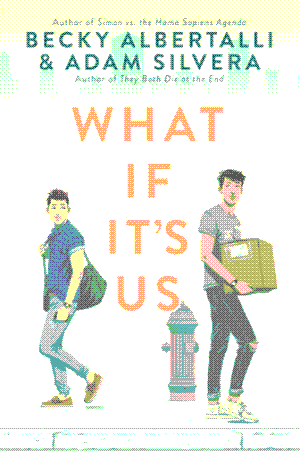
★★ (No review.)
ARTHUR is only in New York for the summer, but if Broadway has taught him anything, it's that the universe can deliver a showstopping romance when you least expect it. BEN thinks the universe needs to mind its business. If the universe had his back, he wouldn't be on his way to the post office carrying a box of his ex-boyfriend's things. But when Arthur and Ben meet-cute at the post office, what exactly does the universe have in store for them ...? Maybe nothing. After all, they get separated. Maybe everything. After all, they get reunited. But what if they can't nail a first date even after three do-overs? What if Arthur tries too hard to make it work and Ben doesn't try hard enough? What if life really isn't like a Broadway play? But what if it is? (StoryGraph.)
An alright book that doesn't really stand for anything at all. It's a YA book about a cute gay romance; not much more about it. I think this book was the one that made me realize I was a lil too old for YA.
Call Me By Your Name
André Aciman | Read: 2020
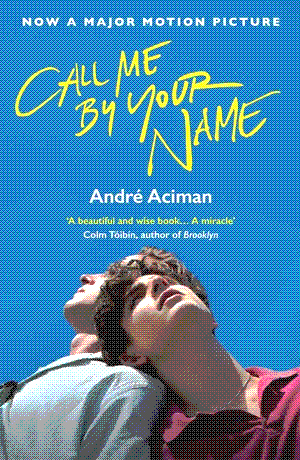
★ (No review... yet)
It’s the mid-1980s; the place is the Italian Riviera. Elio – 17 years old, precocious, the son of an academic – finds himself falling for the older Oliver, a postdoctoral scholar completing his manuscript on Heraclitus at the beautiful home of Elio’s family. Oliver is worldly, handsome, a seductive contrast to Elio’s own naivety. Both are bright and questioning; the hook of desire is soon caught fast.(StoryGraph.)
Hated it. Don't get me wrong, the prose is absolutely gorgeous but 1) the age gap was gross 2) any sexual scene just felt really uncomfortable 3) Elio wants to have sex with EVERYTHING 4) the way dialogue was written made it very hard to follow. It's been 4 years since I've read it and I might reread it but... not really high on my list.
